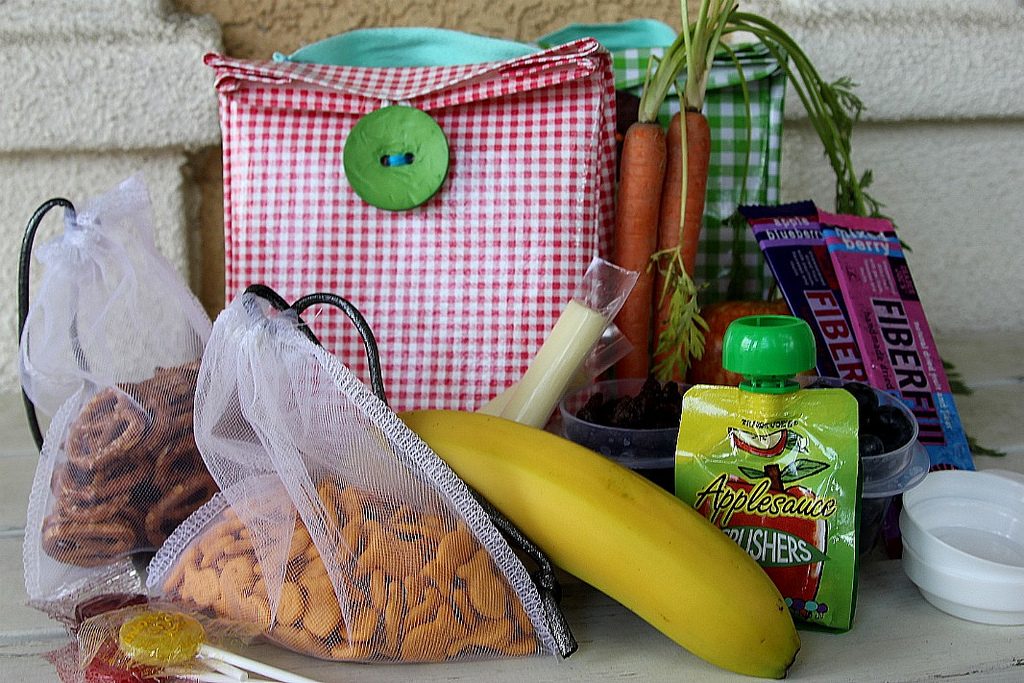Other than the first day of kindergarten, the first day of middle school may be one of the most anxiety-producing days for students and parents alike. The good news is that you and your child CAN and WILL survive this transition – especially if you help. Just ask yourself: can your child do these 4 Skills Before Starting Middle School?
- Teach your child to pack their own lunch – and a good snack. When my kids were little, I always figured if they weren’t hungry or tired I had a chance of surviving the day. This didn’t change as they grew up; the basic needs just get a little more difficult to enforce. Middle school students expend a LOT of energy, and they are hungry all the time. I’m not kidding. If you can teach your child to pack their own lunch – or at least a healthy, energy sustaining snack, not only will your child’s teacher be happy, but you also have a good chance of having a stable child at the end of the day! Reusable water bottles, fruit, protein bars and whole grain crackers are great snacks that help keep students alert and on top of their game. And be sure they pack it themselves- teaching simple self-care techniques prepares them for taking control of their health and wellness and will reduce stress.

- Practice self-awareness. This skill tags along with self-care, and also helps develop an awareness of their emotions and feelings. Middle school students have rapidly changing views and experiences; teaching your child to reflect on life milestones, accomplishments, and successes and challenges from the previous school year helps them to learn about themselves as a learner, as a friend and develops a growth mindset. When school gets challenging, having self-awareness skills to fall back on helps develop confidence and a calm approach.

- Teach your child to write an email. Thanks to technology, today’s educators are much more accessible. If your school uses a management system, make sure you and your children understand how to log on and how to contact teachers. But parents – resist the urge to be the first point of contact with teachers. Have your child reach out with a simple, direct email that states their question and asks for help. I also advise middle school students to set up a professional email address that is used for college contacts; Gmail is an excellent service. Developing self-advocacy skills will ease the communication anxiety and provide valuable training for high school and college.

- Help create an organization system with specific weekly goals. To develop strong study skills and create a peaceful after school environment, your student should create an organization system that works for them. Binders, color coded and labeled folders, digital systems, and traditional paper calendars are all ways middle school students can stay organized. Setting measurable weekly goals, and reflecting on progress, are ways to teach your child about self-monitoring and problem-solving. Not every system works for every child, so it’s important to listen to your child’s ideas and give things a try, even if it isn’t YOUR way. Setting up a reward and logical consequence system alongside to weekly goals will offer a tangible reason for your child to work hardto meet their expectations.

Helping your child develop these 4 skills your child needs before starting middle school should ease the transition for everyone. Remember, your child is likely nervous and anxious about all the ‘newness’ they are experiencing, and while it may seem as if the last thing they want is your advice, just knowing you’re there and paying attention can open the door for supporting them through this exciting time.
Can Your Child Do These 4 Skills Before Starting Middle School?
*This post first appeared on The Educator’s Room – please visit The Educator’s Room website here for more about teaching and parenting.




Comments: 2
Shahzad
November 27, 2023Jenifer, your insightful guidance on preparing children for the challenges of middle school is invaluable. Teaching practical skills like self-awareness, self-advocacy, and organization fosters independence and resilience. Your emphasis on involving children in their own growth is empowering. Parents will benefit greatly from your thoughtful advice.
6 Tips For Reducing Your Child's Stress and Anxiety
March 17, 2018[…] they can to avoid it. Instead of encouraging your child to avoid stressful situations, you should encourage them to face them head-on. The anxiety will reduce naturally over time, not to mention that it will show them that it is […]